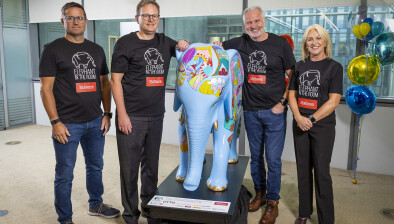High Court: Judge criticises terms in adoption legislation which ‘needlessly hurt the feelings’ of parents and children

The High Court has criticised the wording of the Adoption Act 2010, stating that the terms used “needlessly hurt the feelings of people” involved in the adoption process. The comments came as the court was ruling on an adoption application for a child who had been in foster care since he was a baby.

About this case:
- Citation:[2022] IEHC 269
- Judgment:
- Court:High Court
- Judge:Mr Justice Max Barrett
During the course of his judgement, Mr Justice Max Barrett noted that the statutory requirements for adoption included that the birth parents had “failed” in their duty towards the child and whether any “failure” constituted an “abandonment” of the child. While the court was satisfied that these conditions had been met in the case, it was noted that “more nuanced wording” had less potential to hurt those involved.
Background
The case involved an adoption application for Child X who was in his mid-teens and had been in foster care since he was a baby. He had lived with his foster parents for nearly all his life and they were the only people with whom he ever had a typical parents-child relationship.
Child X’s birth parents had a troubled history. His mother was a minor at the time of his birth, while his father was in his mid-20s. Both parents engaged in drug use throughout the child’s life. The mother had two other children who were both in the care of the Child and Family Agency.
Although the birth parents availed of access visits in 2008 and 2009, these visits reduced over the next few years as the parents failed to keep appointments. There were also increasing difficulties between the birth parents and Child X which caused distress to the child. Child X stated on several occasions that he did want to see his birth mother again.
By 2017, Child X expressed a desire to be adopted by his foster parents. In 2018, it was confirmed to the child that his birth parents were not consenting to an adoption application despite having minimal interactions with them. Child X last saw his birth mother in 2018 and his birth father in 2020.
Subsequently, an application was brought by the foster parents and the Child and Family Agency for an order for adoption pursuant to section 54 of the 2010 Act. The evidence was that Child X had been placed in care as a baby and that he had totally integrated into the family. The foster parents were committed to him and had fulfilled the role as parents to Child X in every respect.
At the hearing of the application, the birth mother did not consent or object to the adoption order being made. She indicated that she did not want Child X to feel that he was given away or “abandoned” by her. However, she offered no further objection to the adoption.
The birth father refused to consent to the application and opposed it on a number of grounds. These complaints included that he suffered from certain disorders which made it difficult to communicate and that his access had always been through arrangements with the Social Work Department. Further, he argued that adoption would sever his connection with Child X and that the adoption was disproportionate.
High Court
Delivering judgment in the case, Mr Justice Max Barrett determined that the child should be adopted by his foster parents. The court received evidence from the Social Work Department and was satisfied that they had always acted in a professional and appropriate manner in facilitating access between the birth parents and the child. In respect of the father’s disorders, the court held that these did not impact on the social workers’ dealings with him. While there was an upsetting incident for the father where Child X threw away presents from him, this was to be expected from children, the court said.
Additionally, the court noted that the father had never taken steps to secure guardianship and custody of Child X and, in reality, the father “played no part whatsoever in Child X’s upbringing”. Further, the court held that any future access for the father to Child X should be dependent on the wishes of the child. The court heard evidence that Child X had a particular disability where he would struggle having two sets of parents where another child might not.
The court also considered concerns about the birth parents and their ability to care for Child X. In particular, there was evidence that the father could not understand the “emotional, physical and safety needs” of the child. Both parents had abused drugs and were taking methadone. The behaviour and language of the father towards Child X and his daughters were “highly inappropriate”, a report found. Finally, the birth father was assessed as posing a medium risk of sexual abuse into the future.
The court noted that the Adoption Authority favoured adoption and, in light of the findings as to the birth parent’s abilities to care for Child X, the court made the order for adoption. In so ruling, the court considered the wording of section 54 of the 2010 Act, which required the court to make various findings that the birth parents had “failed” in their duty to Child X and that this “failure constitutes an abandonment” of parental rights.
While satisfied that the statutory test had been met, the court commented that the terminology in the statute contained “powerful and harsh words” and suggested that more sensitive language be used. The court said that these words had the potential to cause hurt to people involved in the adoption process.
The court noted that an abandoning of rights had a legal meaning but also a colloquial meaning and that other words such as “disclaimer” or “disavowal” could be used. The court asked rhetorically: “Why needlessly hurt the feelings of people whose child is adopted?”
Conclusion
The court granted the order for adoption of Child X to his foster parents.
Child and Family Agency & Ors v. Adoption Authority of Ireland & Ors [2022] IEHC 269








